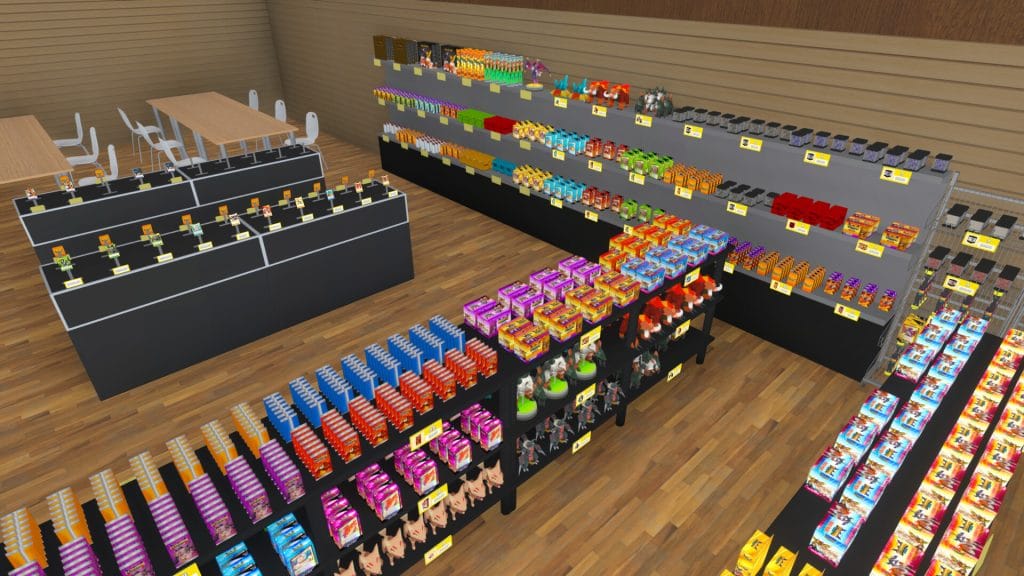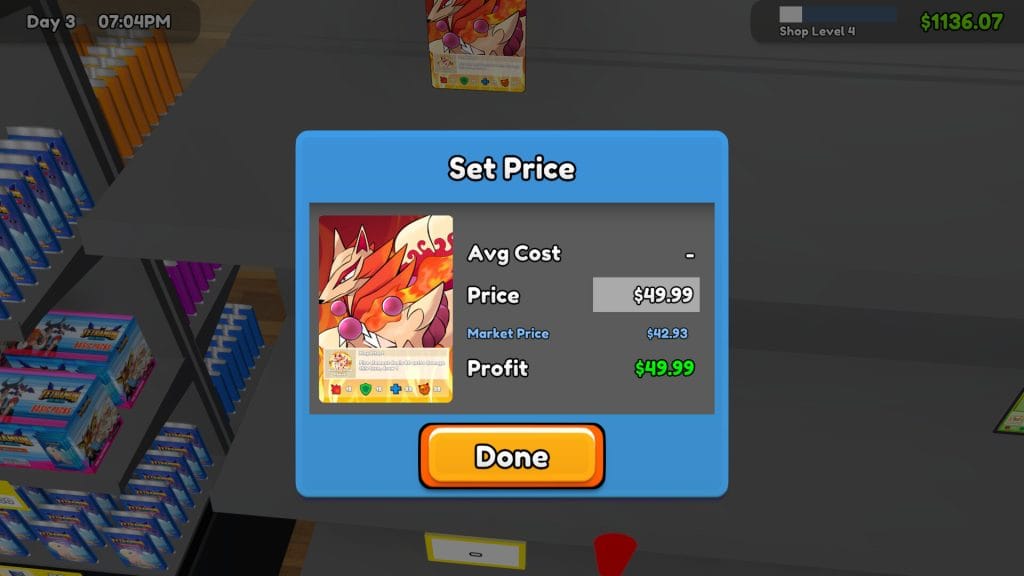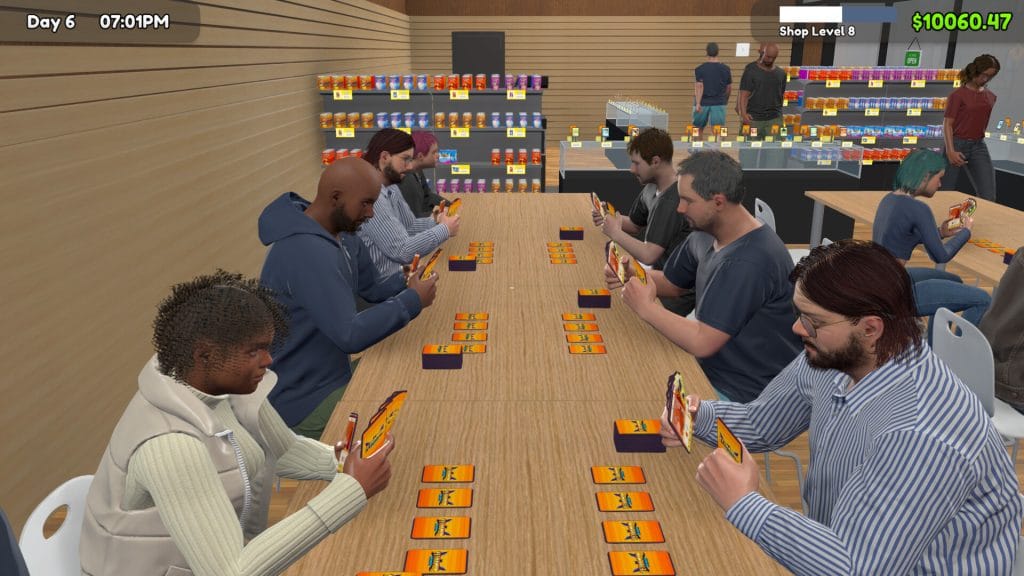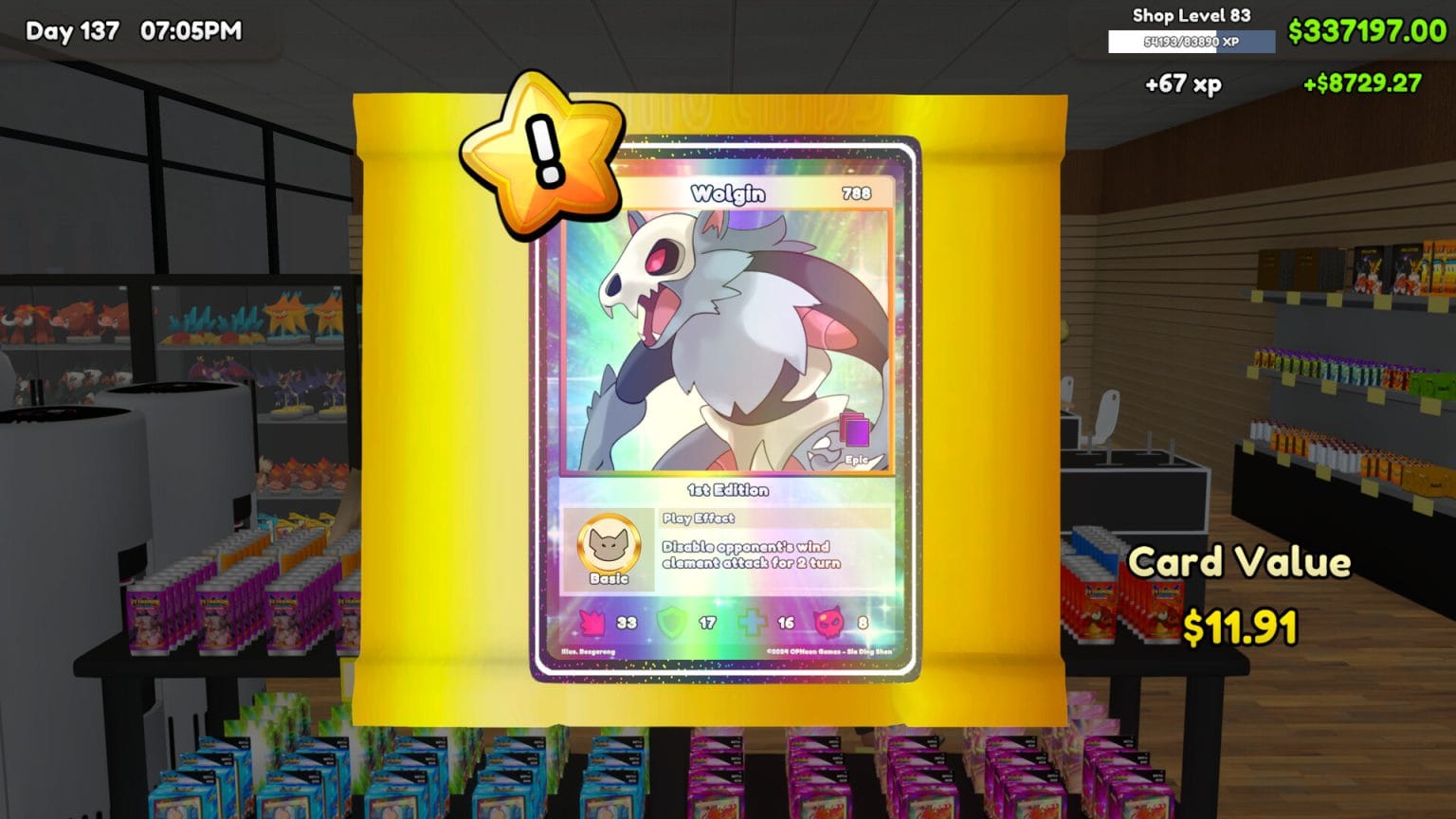Those who know me know that I love a checklist. You give me a set of things to do, with no particular order, but they all have to be done? I’m in heaven. There is satisfaction in finishing a list, especially when that list is low-stakes. Not finishing your to-do list in real life can lead to stress. But in a video game, where the stakes are non-existent? Yes, please.
This need of mine caused me to fall in love with Powerwash Simulator in early 2024. I spent hours listening to music and waiting for the little dings that said “Task Complete.” I was not in a great place mental health wise, and having something that rewarded me for relatively straightforward tasks was amazing. No one was expecting anything from me. If I couldn’t get all the checklist items done in one sitting, I could just come back. Powerwash Simulator gave me the small rewards I needed to feel satisfied in something, no matter how minuscule.
And, lo and behold, I have found that joy again. This time, that straightforward satisfaction is coming in the form of an early access game called TCG Card Shop Simulator by indie dev OPNeon Games.

The Joy of Stocking Shelves
Over the past few years, store management simulators have been flooding onto Steam. From supermarkets to figure shops and die-cast cars, if you want to sell it, you can find a first-person sim for it. And that’s not even counting non-first-person games like the delightful Tiny Bookshop or the wonderfully weird Wanderstop.
Seeking that same inner peace I found in Powerwash Simulator, I tried my hand at Supermarket Simulator earlier this year, and while I enjoyed it, I bounced off it pretty quick. The loop just didn’t catch me. There were too many things to complete with too many roadblocks. It was hard to gauge if I was actually doing a good job. Sure, my money would go up and my store metrics would remain stable, but I was left feeling cold. Creating an “efficient” store wasn’t scratching the itch I wanted.
But TCG Card Shop Simulator is different. The similarities between the two are certainly apparent. Most of your day is spent stocking shelves, checking out customers, and expanding your store. Balancing your checkbook versus your drive to offer more products is a constant tug-of-war. After all, it may cost you $800 to get the license to sell some adorable stuffed animals, but how long will it take to earn that back? There is joy in making a store run smoothly, and it certainly satisfies the checklist itch. But the real magic is in the cards themselves.
Heart of the Cards
In TCG Card Shop Simulator, you are selling items related to a fake trading card game. From deck boxes to plushes to play mats, you stock and carry it all. But most importantly, you are selling the cards themselves. Blind boxes. Starter packs. Boosters. Everything you can use to get a new card, you’ve got it. Like every real card shop, that also includes standalone cards. And how do you get those standalone cards?
By standing in a corner and ripping open card packs. Dozens and hundreds and thousands of card packs. You can spend hours just opening packs (in an animation straight from Magic: The Gathering Arena) and figuring out how much to charge for each card. For instance, currently I sell the basic booster pack for $2.85. If I open a pack, I’m hoping to find a card worth at least that much to make it worth it. After all, if my total pack comes in at $2.00 total, I lost a potential $0.85. So if that happens, what do I do next? Well, I open another pack and hope to hit a card that’s worth at least $6. That’ll cover it all! And on and on we go.

In my experience, TCG Card Shop Simulator hits the perfect medium between two important points. The first is that opening the packs themselves is fun! The animation is joyful, the Pokémon-esque art is fun, and the spreadsheeting of prices adds another item to the checklist. There’s a reason that there are dozens — hundreds? — of content creator channels of people just opening card packs, and it’s part of why Pokémon cards sell out so fast.
But opening packs in TCG Card Shop Simulator also hits the fun of owning and enjoying something you possess. We’re a materialistic species at heart. As far back as prehistory, humans have enjoyed having new shiny things. And here you are, with the ability to (with no financial stake to yourself!) find and discover new things. As a kid, I loved just opening things and seeing what was inside. I still love the joyful surprise of blind boxes. Now, I can do that in a safe and easy space, with a goal behind it!
Add to this the ability to barter with customers who want to sell or trade, host playing tournaments in your shop, and set up events around certain cards and card types, and you have a living, breathing storefront. Customers come back because of the cheaper packs and clean atmosphere they get here, not to mention the deals I’ll cut on individual cards. Is some of this because I diligently run around with a bottle of air freshener, spraying gross customers? Maybe! Some complain that I overcharge for plushes; I tell them to open their wallets anyway, and I’ll toss in some discounted dice. It feels like a real hobby shop, and the results are tangible.

The Life of a Shopkeeper
I won’t pretend TCG Card Shop Simulator is a deep or complex game, at least as of its current September 2024 early access build. The time passes in minutiae, doing the small things to keep your doors open. But those small things feel satisfying, with a sense of accomplishment awaiting at the end of each day. Every night, I check all my stock, open up some new packs, and set myself up for a successful next day. My checklist is done, I’m never behind, and I’m ready to start anew. Add on the small flourishes around the trading card game itself, and you have a package that is worth checking out.
Meanwhile, I’ll be here opening card packs and searching for a thousand-dollar card. It’ll get me out of this financial hole, I promise.
TCG Card Shop Simulator is available in early access on PC via Steam. MRSP: $12.99.
Gary is a jack-of-all-trades video game enthusiast based in Boston, MA. A semi-professional fighting game player, even less professional Apex Legends player, and even less professional adult, he spends most of his time poking at strange indie gems and reading about the need for more diverse voices in gaming criticism. He invites anyone to recommend anything he's missed in the gaming world via Twitter or BlueSky, where he can found under the username @grtnpwrfl. When he isn't spending his time playing games, Gary is an avid New England Patriots fan and frequent hiker.










